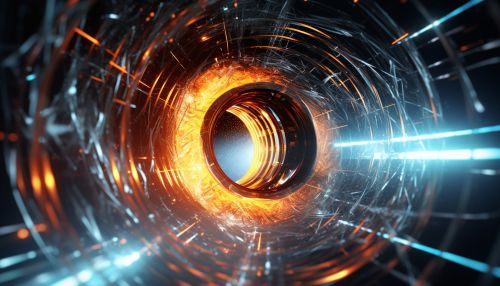Bosons
Introduction
Bosons are a class of particles which obey Bose-Einstein statistics. Named after Satyendra Nath Bose and Albert Einstein, bosons contrast with fermions, which obey Fermi-Dirac statistics.


Properties of Bosons
Bosons are characterized by their integral spin, or angular momentum, in units of Planck's constant. This property allows them to occupy the same quantum state as other bosons, leading to phenomena such as Bose-Einstein condensation and superfluidity.
Types of Bosons
Bosons can be classified into two types: gauge bosons and scalar bosons.
Gauge Bosons
Gauge bosons are force carrier particles that mediate the fundamental forces of physics. These include the photon, which carries the electromagnetic force, the W and Z bosons, which carry the weak force, and the gluon, which carries the strong force. The hypothetical graviton, a particle thought to carry the force of gravity, is also a gauge boson.
Scalar Bosons
Scalar bosons are particles with spin zero. The most famous scalar boson is the Higgs boson, discovered at the Large Hadron Collider in 2012. The Higgs boson is associated with the Higgs field, a field of energy that permeates the universe and gives other particles their mass.
Bosons in Quantum Field Theory
In quantum field theory, bosons are associated with force fields. The quantum of a force field is a boson. For example, the quantum of the electromagnetic field is the photon, and the quantum of the Higgs field is the Higgs boson.
